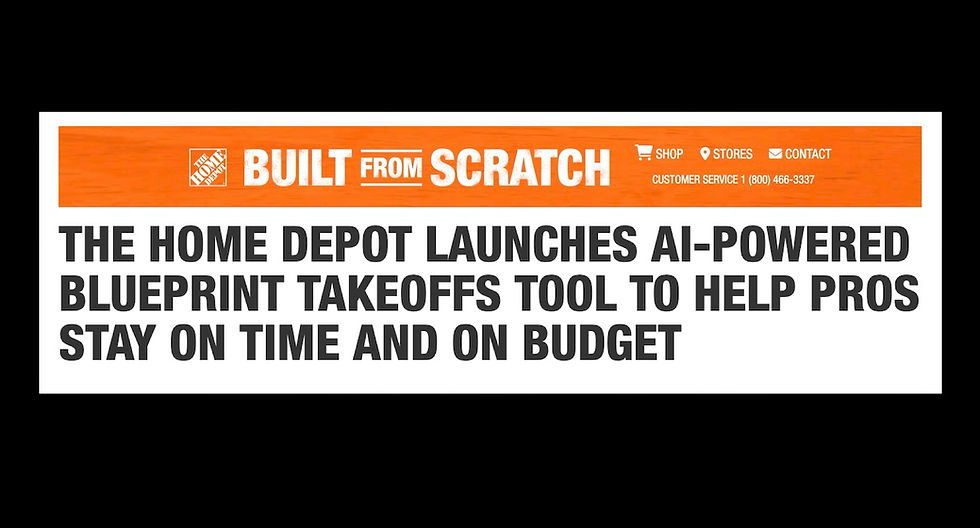How Your Business Can Avoid Becoming a Victim of the Great Resignation
- Craig Webb

- Dec 15, 2021
- 4 min read
by Rikka Brandon

The LBM industry was already in the throes of a labor crunch before the pandemic, and today the situation has grown even more challenging for many years. Part of the crisis stems from a movement among workers who, for a variety of reasons, are quitting their jobs for other positions or even no position at all. It’s called The Great Resignation, and while the problem appears to be most acute at restaurants, hotels, and entertainment venues, LBM dealers should be aware of this trend, too.
What Is the Great Resignation?
In my opinion, “The Great Resignation” is a bit over-simplified, attributed to issues like robust government payouts and COVID fears. It neglects to explore what often are deep reasons for the departure of so many workers.
I believe the pandemic caused many people to re-think their lives, their priorities, and the relationship they have with work. Many concluded that a job is much more to them than just a paycheck and benefits (although those do matter). It’s about working for a company that encourages work/life balance. It’s about doing work that matters and that they believe in. It’s about feeling that they matter.
What Puts Your Company at Risk?
Few industries are immune to such thinking. So how do you know if your company is at risk of mass departures, or at least finds hiring workers tougher than it used to be?
First and foremost is a lack of awareness—assuming that your company is immune from the phenomenon. You may think that you have created the ideal work environment, but unless you’re vigilant, you may not be aware of just how stressful it might be for your employees—keeping up with the pressures of on-time/in-full delivery, managing customer expectations, dealing with supply chain issues, and numerous other challenges can begin to take a mental toll on employees. In fact, the ones that you don’t have to worry about as much—the ones who are driven to succeed and do a good job—may be under the most stress.
You may also believe you are offering top-notch compensation. But when was the last time you really checked? Have you studied recent salary surveys for your area? Have you also looked at the salaries and benefits for similar industries that use similar skill sets of your team members?
Finally, when was the last time you checked in with your employees? The best way to determine the overall attitude of your team is to simply ask and listen. What do they like and dislike about their current roles? How do they feel about company culture? What would make their jobs easier or more valuable to them?
There’s rarely been a time when holding on to your employees has been more important than right now. Consider these strategies.
Ensure you’re offering competitive compensation
Competitive salaries are not just a concern for new hires. Your current employees should also be competitively compensated, or else you risk losing them. And remember, you’re not just competing against other lumberyards for hourly workers, but also against big companies with similar positions. Research local salary surveys or use salary.com to make sure your compensation is above average to attract and keep quality team members. Ashby Lumber Recognized early that its compensation packages for hourly positions weren't as competitive as they had been in the past. Once Ashby raised pay levels for those jobs, it has had very few challenges recruiting and retaining for their front line positions.
Actively engage and communicate
Make a point to understand the pressures and challenges your employees are experiencing. AND THEN WORK HARD TO GIVE THEM RELIEF. Few things are worse for your culture than to ask what needs fixing, say you're going to do something, and then fail to show you're trying, let alone delivering the change. In Iowa, Marcus Lumber has a 101-year record of never laying off a team member. That’s a powerful sign of commitment. As a result, Marcus can include robust employee testimonials in its recruiting packages.
Create professional development paths
Invest in assessments, training, coaching, etc. By showing them you're interested in developing them and that there is a career path at your organization, they'll see a future with you that may stop them from looking for that development and future somewhere else. California’s Big Creek gives its leaders personality tests to help identify what’s behind their behaviors, then offers coaching to help those leaders improve.
Recognize and reward your employees for good choices, hard work, working smart, problem solving, and more
Catch them doing something right and reward them with gift cards to a restaurant, event tickets, cash, or something else that is tangible and that they can create an experience with. Lampert Lumber used to give out small prizes on the spot regularly, and Friedman’s in California has a bulletin board in which an employee can cite a co-worker who engaged in a safe practice, making that staffer eligible for a weekly prize. Or buy them something tangible they will have experiences with. People remember experiences far longer than items.
One thing you’ll notice about these strategies is that they require action. Your active participation is crucial in shielding your company from the effects of The Great Resignation. Now is not the time to wait and hope for the best. Take the pulse of your staff, listen to their concerns, and make the changes to create a culture that makes people want to stay and to succeed.
Rikka Brandon is the Founder of Building Gurus and RecruitRetainRock.com she works with LBM and building products owners and leaders to build best-in-class recruiting and retention programs. You can schedule a free Discovery Call with her at BuildingGurus.com/Discovery






Comments